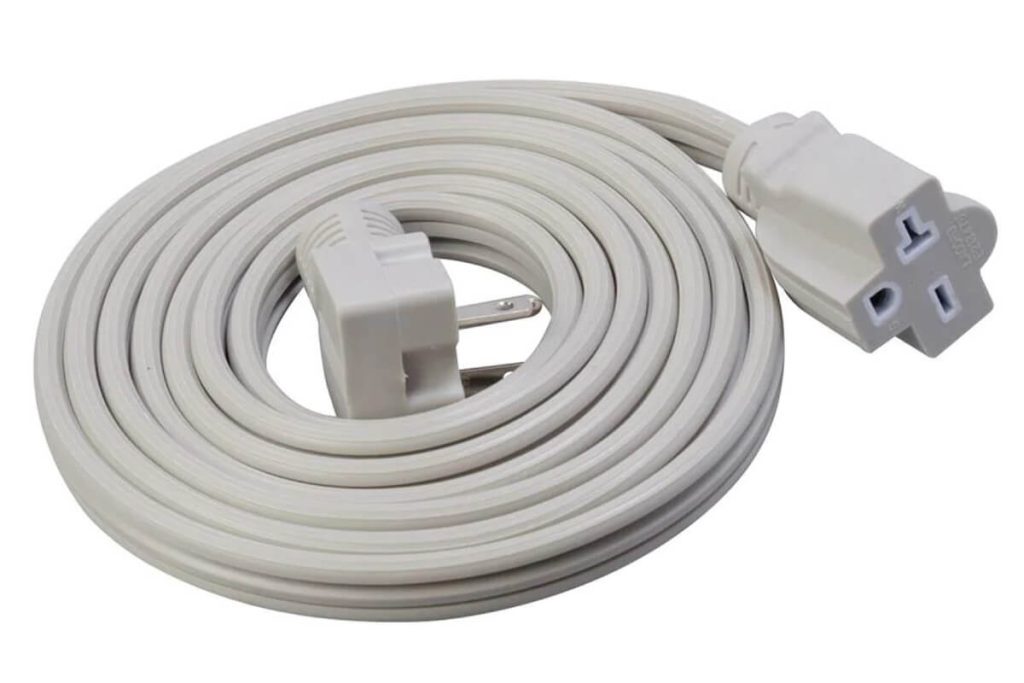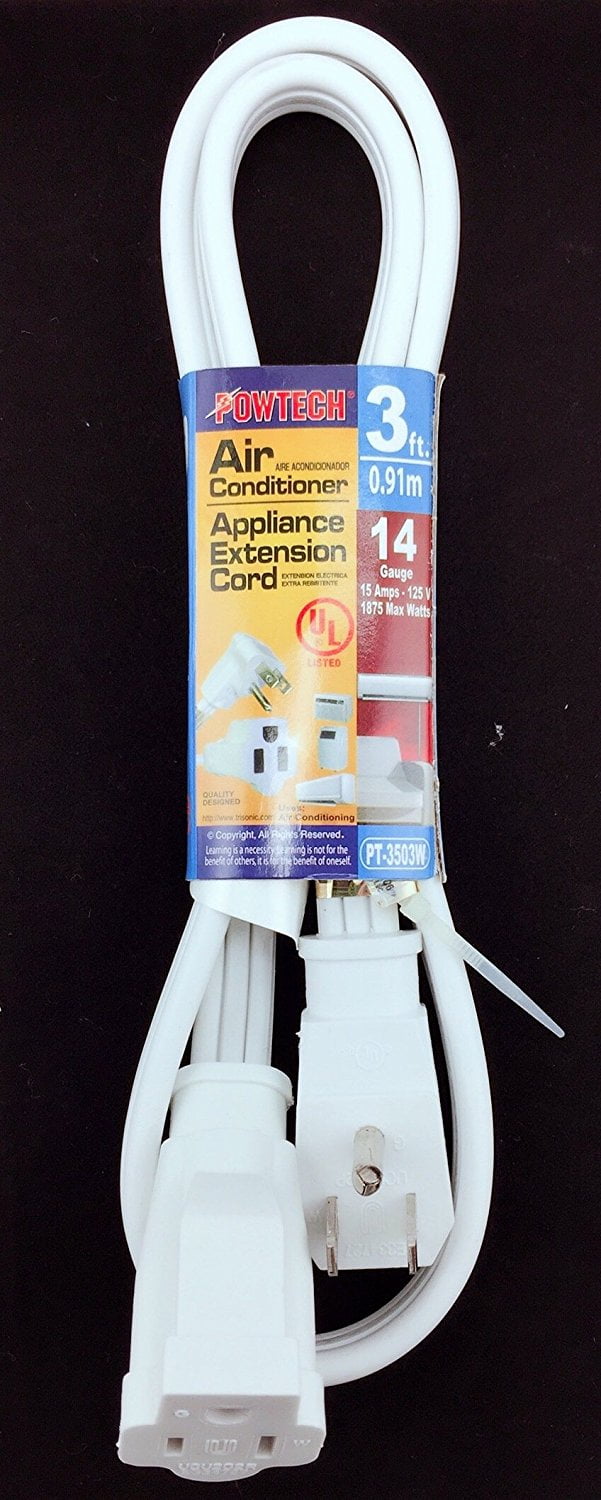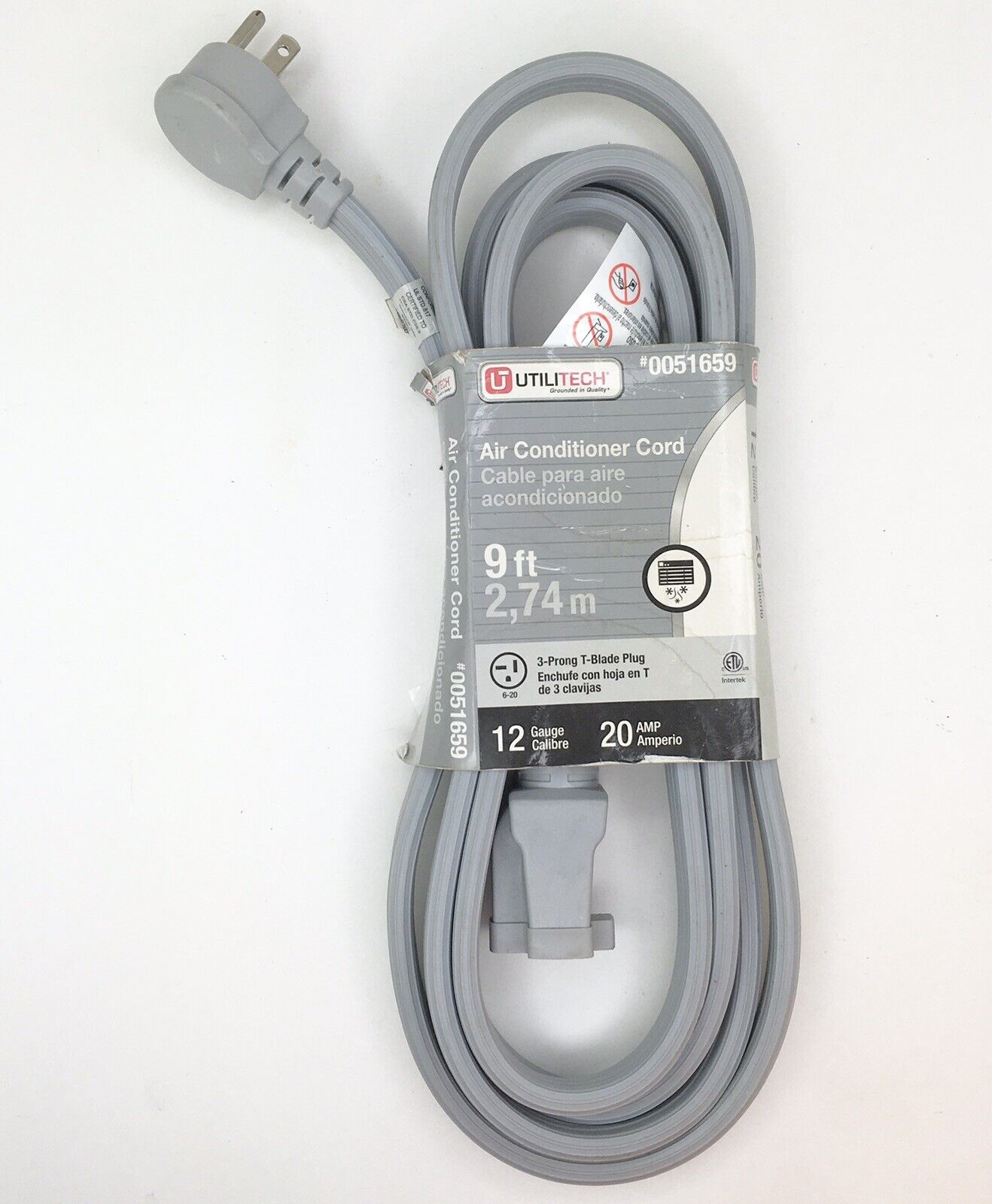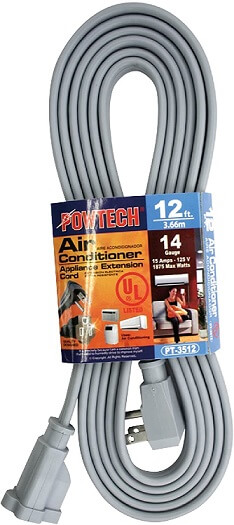Can I Use Extension Cord For Air Conditioner

The summer heat is on, and air conditioners are working overtime. But before you plug that window unit or portable AC into just any outlet using an extension cord, electrical safety experts urge caution. Incorrect use can lead to overloaded circuits, potential fires, and damaged appliances.
This article examines the critical question: Can you safely use an extension cord for an air conditioner? It delves into the guidelines and recommendations from electrical safety organizations to help homeowners and renters make informed decisions about cooling their homes safely.
Understanding the Risks
The core concern revolves around electricity. Air conditioners, particularly larger units, require a significant amount of power to operate efficiently. Using an inadequate extension cord can create a bottleneck, forcing the cord to overheat.
Overheated cords can melt insulation, leading to short circuits and potentially starting fires. The National Fire Protection Association (NFPA) consistently highlights electrical malfunctions as a leading cause of residential fires.
Furthermore, insufficient power delivery can also damage the air conditioner itself. The motor may struggle to start, leading to premature wear and tear or even complete failure.
Official Guidelines and Recommendations
Several organizations offer guidance on this important matter. Underwriters Laboratories (UL), a leading safety certification company, advises against using standard extension cords for air conditioners, particularly those not explicitly designed for heavy-duty appliances.
According to UL, it is crucial to check the air conditioner's power requirements (Amps and Volts) and ensure that the extension cord is rated to handle that load. Never use an extension cord that is underrated.
The Electrical Safety Foundation International (ESFI) also emphasizes the importance of using heavy-duty extension cords that match or exceed the air conditioner’s power needs. They recommend that the cord be as short as possible to minimize voltage drop.
Key Factors to Consider
Several factors determine whether using an extension cord is a safe option. First and foremost, check the air conditioner's specifications. This information is typically found on a sticker located on the unit itself, in the user manual, or on the manufacturer's website.
Once you know the power requirements, you can select the appropriate extension cord. Look for cords labeled as "heavy-duty" or "appliance-grade".
Ensure the cord's gauge (AWG - American Wire Gauge) is sufficiently low to handle the amperage. A lower gauge number indicates a thicker wire, capable of carrying more current. For example, a 12-gauge cord is thicker and safer for high-power appliances than a 16-gauge cord.
It's essential to plug the air conditioner directly into a wall outlet whenever possible. This minimizes the risk of voltage drop and overheating. If an extension cord is unavoidable, choose the shortest possible length.
What to Avoid
Never use lightweight or indoor-only extension cords for air conditioners. These cords are not designed to handle the high power demands and are more likely to overheat. Similarly, avoid daisy-chaining extension cords together. This practice increases the risk of voltage drop and overheating at the connections.
Regularly inspect the extension cord for any signs of damage, such as cuts, frayed wires, or loose connections. Replace damaged cords immediately.
Never run extension cords under rugs or furniture. This can trap heat and increase the risk of fire. Also, do not overload the circuit by plugging too many appliances into the same outlet or extension cord.
Alternatives and Solutions
If you frequently need to use an extension cord for your air conditioner, consider installing an additional outlet closer to the unit. A qualified electrician can safely add a new outlet with the appropriate amperage rating.
Another option is to use a power strip with surge protection. However, make sure the power strip is also rated for heavy-duty use and has a high enough amperage rating to handle the air conditioner’s power draw. Note that surge protectors are intended to protect electronics from power spikes, not as a safe way to extend the reach to an AC outlet.
Portable air conditioners are available with various cooling capacities. Choose a unit appropriate for the size of the room you need to cool to avoid overworking the appliance and increasing power consumption.
Human Interest Angle
For Maria Rodriguez, a single mother living in an older apartment building, the summer heat poses a significant challenge. Her window air conditioner is essential for keeping her and her young child comfortable. She previously used a standard extension cord, unaware of the risks.
"I didn't realize how dangerous it was," Maria confessed. "After learning about the potential for fire, I immediately switched to a heavy-duty cord and had an electrician check my wiring. It gave me peace of mind knowing I was keeping my family safe."
Conclusion
Using an extension cord with an air conditioner requires careful consideration and adherence to safety guidelines. While it's possible to use one safely, it's crucial to choose a heavy-duty cord with the appropriate amperage rating and to inspect it regularly for damage.
When in doubt, consult with a qualified electrician to ensure your electrical system can safely handle the air conditioner's power demands. Prioritizing safety can prevent electrical hazards and ensure a comfortable, cool summer.
Remember that directly plugging the air conditioner into a dedicated wall outlet is always the safest option. Staying informed and following expert recommendations can help keep your home and family safe from electrical fires and appliance damage this summer.




